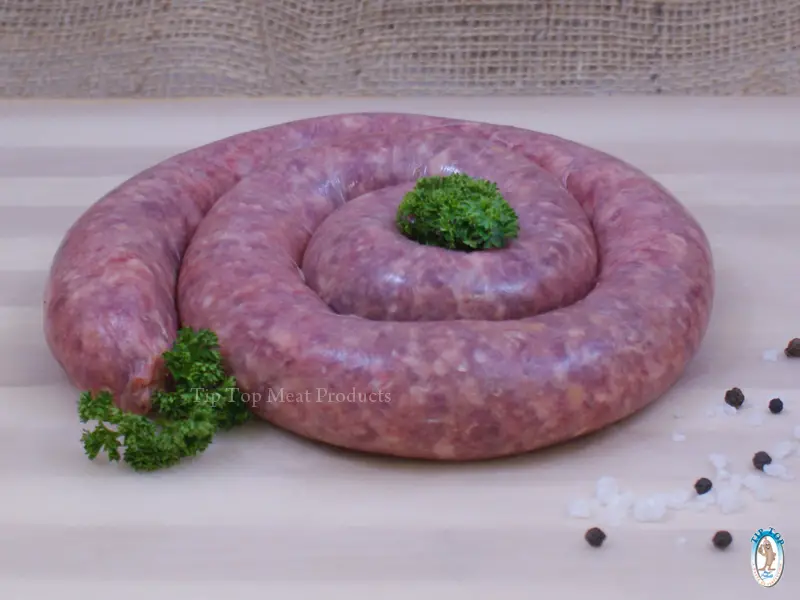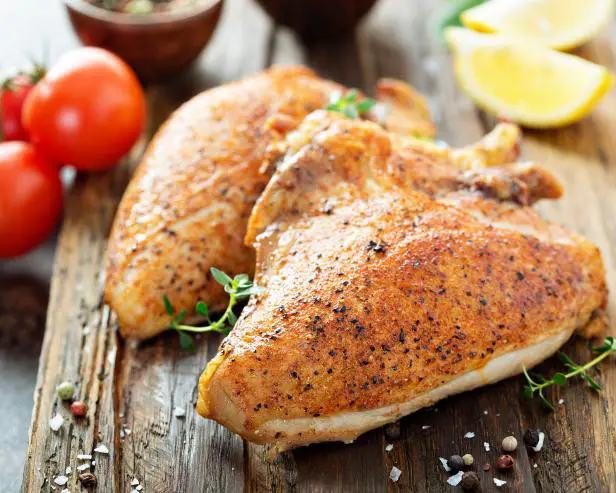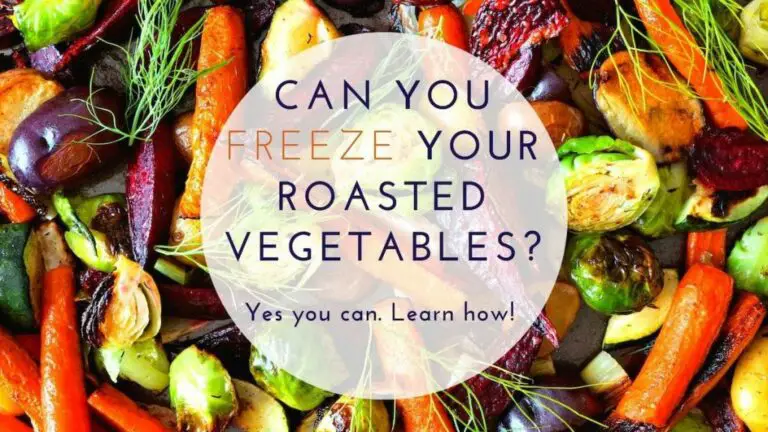When cooking fish, it is natural for the weight to decrease due to various factors. According to food experts, fish can lose around 20-30% of its weight during the cooking process. This weight loss occurs primarily due to moisture evaporation, rendering out fat, and some loss of proteins. It is important to note that the exact percentage may vary depending on the type of fish and the cooking method employed.
Key Takeaways:
- Cooked fish typically experiences a weight loss of 20-30% due to moisture evaporation, rendering out fat, and protein loss.
- The percentage of weight loss can vary based on the type of fish and the cooking method used.
- Grilling and frying methods generally result in more weight loss compared to steaming or poaching.
- Fish with higher water content will experience a more substantial reduction in weight.
- The weight loss of fish during cooking can impact portion sizes and nutritional value.
Factors Affecting Cooked Fish Weight Loss
When it comes to the weight loss of fish during cooking, several factors come into play. These factors not only influence the final weight of the cooked fish but also impact its overall texture and taste. Understanding these factors is essential for achieving desired cooking outcomes and optimizing the cooking method for different types of fish.
1. Cooking Method
The cooking method used has a significant impact on the weight loss of fish. Grilling and frying methods generally result in more weight loss compared to gentler methods like steaming or poaching. The direct heat in grilling and frying causes moisture evaporation, leading to a reduction in the overall weight of the fish. On the other hand, steaming and poaching involve less direct heat, resulting in less moisture loss and therefore, less weight reduction.
2. Moisture Content
The moisture content of the fish itself plays a crucial role in determining the weight loss during cooking. Fish with higher water content will experience a more substantial reduction in weight as the moisture evaporates. Conversely, fish with lower water content will retain more of their initial weight. This is why it’s important to consider the moisture content of the fish when selecting the cooking method.
3. Initial Fat Content
The initial fat content of the fish can also affect its weight loss during cooking. As the fish cooks, fat renders out, contributing to the reduction in weight. Fish with higher fat content are likely to experience more weight loss due to the higher fat content present. It’s worth noting that different fish species have varying fat content, so the impact of initial fat content on weight loss can differ.
By taking these factors into account, you can make informed decisions about the cooking method and adjust your expectations regarding the weight loss of the fish. Understanding these factors will enable you to achieve the desired results and optimize the cooking process for the specific type of fish you are working with.
| Factors Affecting Cooked Fish Weight Loss |
|---|
| Cooking Method |
| Moisture Content |
| Initial Fat Content |
Examples of Fish Weight Loss by Cooking Method
When it comes to cooking fish, the choice of cooking method can have a significant impact on the weight loss experienced. Different methods can result in varying degrees of weight reduction in the fish. For instance, grilling a fish fillet can lead to a weight loss of approximately 25-30%, while frying can result in a more substantial loss of around 30-40%.
On the other hand, gentler cooking methods like poaching and steaming tend to result in less weight loss. When poaching or steaming fish, you can expect the fish to lose around 10-20% of its initial weight. It’s important to note that these percentages can vary slightly depending on factors such as the type of fish being cooked and its thickness.
Here is a comparison of the weight loss experienced by different cooking methods:
| Cooking Method | Weight Loss Percentage |
|---|---|
| Grilling | 25-30% |
| Frying | 30-40% |
| Poaching | 10-20% |
| Steaming | 10-20% |
Exploring the Variations
It’s important to recognize that these percentages are general estimates, and actual weight loss can vary depending on several factors. The type of fish being cooked plays a role, as fish with higher moisture content may experience more significant weight reduction. Additionally, the thickness of the fish fillet can also affect the degree of weight loss. Thicker cuts of fish tend to retain more moisture during cooking, resulting in relatively lower weight loss.
Understanding the variations in weight loss by cooking method can help you make more informed decisions when choosing how to prepare your fish. Whether you prefer the charred flavors of grilled fish or the delicate tenderness of poached fish, knowing the expected weight loss can help you plan your meals and adjust portion sizes accordingly.
Implications and Considerations
The weight loss of fish during cooking can have several implications and considerations that are important to take into account. Firstly, the reduction in weight can impact portion sizing. As fish loses weight during the cooking process, the final cooked portion may appear smaller than the raw portion. This can lead to potential misconceptions about serving sizes and may result in either insufficient or excessive portions being served.
Additionally, understanding the weight loss of fish during cooking is crucial for accurate nutritional value considerations. As the weight of the fish decreases, certain nutrients become more concentrated in the final cooked product. This includes important components such as omega-3 fatty acids, vitamins, and minerals. Adjusting portion sizes and accounting for changes in nutrient concentration is essential to ensure individuals are receiving the appropriate nutritional benefits.
When planning meals and cooking fish, it is important to have knowledge of cooked fish weight loss effects. This knowledge empowers individuals to make informed decisions regarding cooking techniques and portion sizes. By understanding the impact of weight loss on portion size and nutritional value, individuals can create balanced meals that meet their dietary needs and goals.
| Effect of Fish Weight Loss on Cooking | Implications and Considerations |
|---|---|
| Portion Sizing | The weight loss of fish during cooking can lead to discrepancies in portion sizes, potentially resulting in over or under servings. |
| Nutritional Value | As fish loses weight, certain nutrients become more concentrated in the final cooked product, requiring adjustments in portion sizing and nutritional considerations. |
| Meal Planning | Understanding the weight loss of fish allows for informed decision-making when planning meals, ensuring appropriate portion sizes and nutritional balance. |
Tips to Minimize Weight Loss
When cooking fish, it is natural for a certain amount of weight to be lost. However, there are techniques you can employ to minimize this weight loss and ensure that your fish remains moist and flavorful. By following these tips, you can retain the natural juices and prevent excess moisture from evaporating, resulting in a more succulent final dish.
Choose Cooking Methods That Retain Moisture
One of the most effective ways to minimize weight loss in fish is to select cooking methods that involve less direct heat and reduce moisture evaporation. Steaming and poaching are excellent choices as they gently cook the fish, preserving its moisture content. These methods are particularly beneficial for delicate fish varieties that can easily dry out.
Marinate Before Cooking
Marinating fish before cooking can be highly beneficial in preventing excessive moisture loss. A marinade not only adds flavor but also helps to retain moisture and prevents the fish from drying out. You can create a marinade by combining your choice of herbs, spices, and acidic ingredients like lemon juice or vinegar. Allow the fish to marinate for at least 30 minutes before cooking to maximize its effectiveness.
Properly Wrap the Fish
Another technique to minimize weight loss is to wrap the fish in foil or parchment paper before cooking. This method helps to trap moisture and prevent it from escaping during the cooking process. By creating a sealed environment, the fish retains its natural juices and remains tender. Ensure that the foil or parchment paper is tightly wrapped to prevent any steam from escaping.
By applying these tips, you can minimize the weight loss in your cooked fish and enjoy a delicious, moist final product. Remember to select appropriate cooking methods, marinate the fish before cooking, and wrap it properly to retain moisture. With these techniques, you can serve a perfectly cooked fish dish every time.
Importance of Understanding Cooked Fish Weight Loss
Understanding the weight loss of fish during cooking is essential for a variety of reasons. Firstly, it allows us to adjust portion sizes accurately. By knowing how much weight fish loses when cooked, we can ensure that our servings are appropriate and in line with our dietary goals. This knowledge helps prevent over- or underestimating the amount of fish needed for a meal, resulting in a well-balanced plate.
Additionally, understanding cooked fish weight loss plays a significant role in providing accurate nutritional information. As the weight of fish decreases during cooking, the concentration of nutrients, such as omega-3 fatty acids, vitamins, and minerals, can become more pronounced. By accounting for this weight loss, we can accurately determine the nutritional value of the cooked fish, enabling us to make informed decisions about our dietary intake.
Moreover, having knowledge about the weight loss of fish empowers us to make informed decisions when it comes to meal planning and cooking techniques. Armed with the understanding that certain cooking methods result in more significant weight reduction, we can choose methods that align with our desired outcomes. Whether we aim to minimize weight loss or prefer the flavors and textures associated with specific cooking techniques, understanding fish weight loss allows us to make choices that result in satisfying and nutritious meals.
In conclusion, recognizing the significance of understanding cooked fish weight loss is crucial for adjusting portion sizes, obtaining accurate nutritional information, and making informed decisions about meal planning and cooking techniques. By acknowledging and embracing this knowledge, we can enhance our culinary experiences and maintain a well-balanced diet.
FAQ
Q: How much weight does fish lose when cooked?
A: Fish can lose around 20-30% of its weight during the cooking process.
Q: What factors affect cooked fish weight loss?
A: The cooking method, moisture content of the fish, and initial fat content can impact the weight loss of cooked fish.
Q: Can you provide examples of fish weight loss by cooking method?
A: Grilling can lead to a weight reduction of around 25-30%, frying can result in a loss of approximately 30-40%, while poaching and steaming result in less weight loss, around 10-20%.
Q: What are the implications and considerations of fish weight loss during cooking?
A: The weight loss can affect portion sizes and the concentration of certain nutrients in the final cooked product.
Q: Are there tips to minimize weight loss when cooking fish?
A: Yes, choosing cooking methods like steaming or poaching, marinating the fish before cooking, and wrapping it in foil or parchment paper can help retain moisture and minimize weight loss.
Q: Why is understanding cooked fish weight loss important?
A: It helps individuals adjust portion sizes accurately, provides accurate nutritional information, and enables informed decisions in meal planning and cooking techniques.



